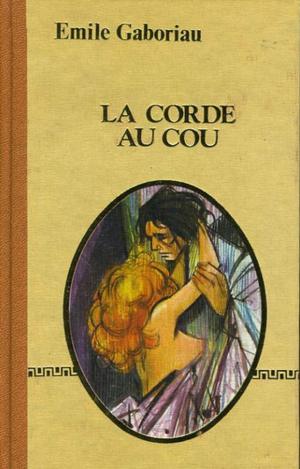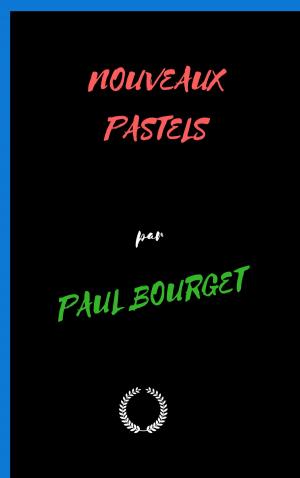| Author: | Joseph Sheridan Le Fanu | ISBN: | 1230002425696 |
| Publisher: | Jwarlal | Publication: | July 13, 2018 |
| Imprint: | Language: | English |
| Author: | Joseph Sheridan Le Fanu |
| ISBN: | 1230002425696 |
| Publisher: | Jwarlal |
| Publication: | July 13, 2018 |
| Imprint: | |
| Language: | English |
When Mr. Jennings breaks down quite, and beats a retreat from the vicarage, and returns to London, where, in a dark street off Piccadilly, he inhabits a very narrow house, Lady Mary says that he is always perfectly well. I have my own opinion about that. There are degrees of course. We shall see.
Mr. Jennings is a perfectly gentlemanlike man. People, however, remark something odd. There is an impression a little ambiguous. One thing which certainly contributes to it, people I think don't remember; or, perhaps, distinctly remark. But I did, almost immediately. Mr. Jennings has a way of looking sidelong upon the carpet, as if his eye followed the movements of something there. This, of course, is not always. It occurs now and then. But often enough to give a certain oddity, as I have said, to his manner, and in this glance travelling along the floor there is something both shy and anxious.
A medical philosopher, as you are good enough to call me, elaborating theories by the aid of cases sought out by himself, and by him watched and scrutinised with more time at command, and consequently infinitely more minuteness than the ordinary practitioner can afford, falls insensibly into habits of observation, which accompany him everywhere, and are exercised, as some people would say, impertinently, upon every subject that presents itself with the least likelihood of rewarding inquiry.
There was a promise of this kind in the slight, timid, kindly, but reserved gentleman, whom I met for the first time at this agreeable little evening gathering. I observed, of course, more than I here set down; but I reserve all that borders on the technical for a strictly scientific paper.
I may remark, that when I here speak of medical science, I do so, as I hope some day to see it more generally understood, in a much more comprehensive sense than its generally material treatment would warrant. I believe the entire natural world is but the ultimate expression of that spiritual world from which, and in which alone, it has its life. I believe that the essential man is a spirit, that the spirit is an organised substance, but as different in point of material from what we ordinarily understand by matter, as light or electricity is; that the material body is, in the most literal sense, a vesture, and death consequently no interruption of the living man's existence, but simply his extrication from the natural body—a process which commences at the moment of what we term death, and the completion of which, at furthest a few days later, is the resurrection "in power."
The person who weighs the consequences of these positions will probably see their practical bearing upon medical science. This is, however, by no means the proper place for displaying the proofs and discussing the consequences of this too generally unrecognized state of facts.
When Mr. Jennings breaks down quite, and beats a retreat from the vicarage, and returns to London, where, in a dark street off Piccadilly, he inhabits a very narrow house, Lady Mary says that he is always perfectly well. I have my own opinion about that. There are degrees of course. We shall see.
Mr. Jennings is a perfectly gentlemanlike man. People, however, remark something odd. There is an impression a little ambiguous. One thing which certainly contributes to it, people I think don't remember; or, perhaps, distinctly remark. But I did, almost immediately. Mr. Jennings has a way of looking sidelong upon the carpet, as if his eye followed the movements of something there. This, of course, is not always. It occurs now and then. But often enough to give a certain oddity, as I have said, to his manner, and in this glance travelling along the floor there is something both shy and anxious.
A medical philosopher, as you are good enough to call me, elaborating theories by the aid of cases sought out by himself, and by him watched and scrutinised with more time at command, and consequently infinitely more minuteness than the ordinary practitioner can afford, falls insensibly into habits of observation, which accompany him everywhere, and are exercised, as some people would say, impertinently, upon every subject that presents itself with the least likelihood of rewarding inquiry.
There was a promise of this kind in the slight, timid, kindly, but reserved gentleman, whom I met for the first time at this agreeable little evening gathering. I observed, of course, more than I here set down; but I reserve all that borders on the technical for a strictly scientific paper.
I may remark, that when I here speak of medical science, I do so, as I hope some day to see it more generally understood, in a much more comprehensive sense than its generally material treatment would warrant. I believe the entire natural world is but the ultimate expression of that spiritual world from which, and in which alone, it has its life. I believe that the essential man is a spirit, that the spirit is an organised substance, but as different in point of material from what we ordinarily understand by matter, as light or electricity is; that the material body is, in the most literal sense, a vesture, and death consequently no interruption of the living man's existence, but simply his extrication from the natural body—a process which commences at the moment of what we term death, and the completion of which, at furthest a few days later, is the resurrection "in power."
The person who weighs the consequences of these positions will probably see their practical bearing upon medical science. This is, however, by no means the proper place for displaying the proofs and discussing the consequences of this too generally unrecognized state of facts.















